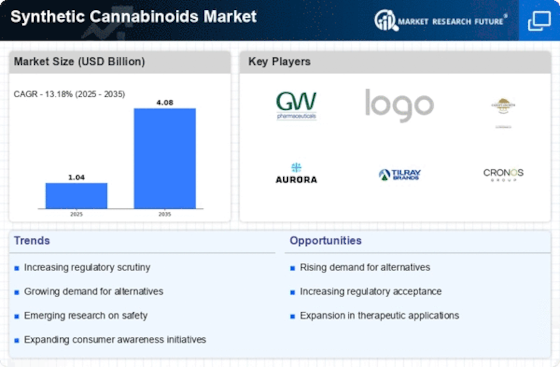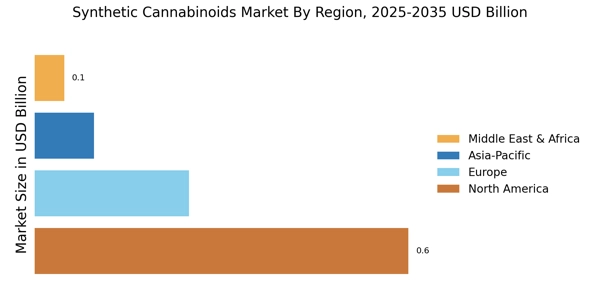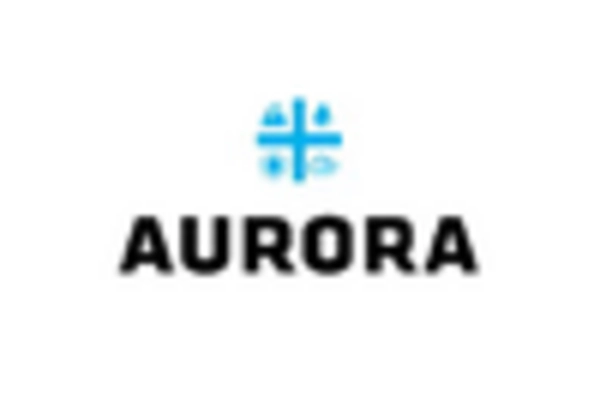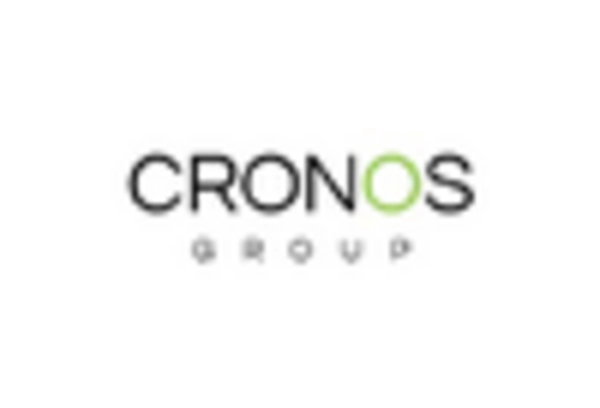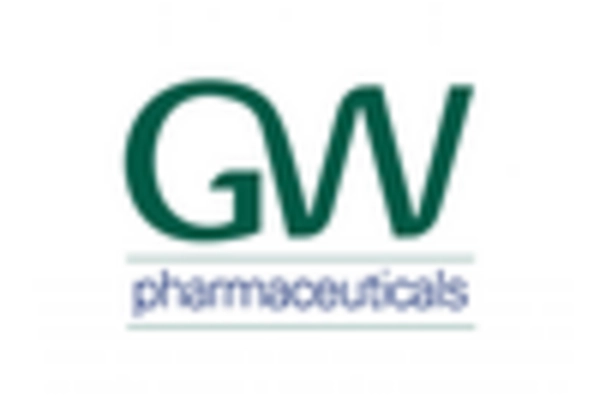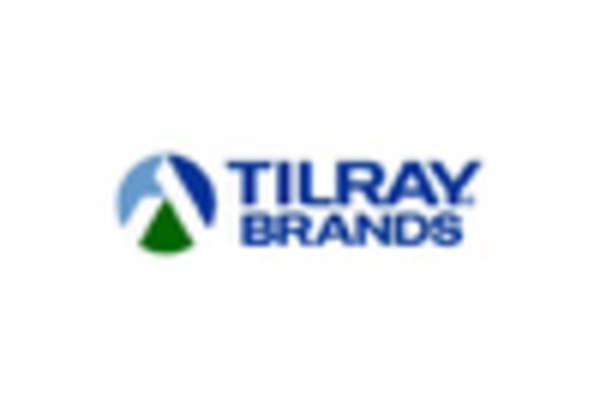Regulatory Developments
The evolving regulatory landscape surrounding synthetic cannabinoids appears to be a pivotal driver for the Synthetic Cannabinoids Market. As governments and regulatory bodies increasingly recognize the potential therapeutic benefits of these compounds, there is a growing push for clearer guidelines and frameworks. This regulatory clarity may facilitate research and development, thereby encouraging investment in the sector. For instance, recent legislative changes in various regions have led to a surge in the number of approved synthetic cannabinoid products. This trend suggests that as regulations become more favorable, the market could experience accelerated growth, potentially reaching a valuation of several billion dollars in the coming years.
Therapeutic Applications
The expanding range of therapeutic applications for synthetic cannabinoids is a key driver for the Synthetic Cannabinoids Market. Research indicates that these compounds may offer relief for various medical conditions, including chronic pain, anxiety, and epilepsy. As clinical studies continue to validate these benefits, healthcare providers are increasingly considering synthetic cannabinoids as viable treatment options. This trend is reflected in market data, which shows a growing number of prescriptions for synthetic cannabinoid products. The potential for these substances to address unmet medical needs suggests that the market may experience substantial growth, with projections indicating a compound annual growth rate that could exceed 20% over the next few years.
Consumer Awareness and Education
Consumer awareness regarding the benefits and risks associated with synthetic cannabinoids is likely to play a crucial role in shaping the Synthetic Cannabinoids Market. As educational initiatives increase, consumers are becoming more informed about the potential therapeutic applications of these substances. This heightened awareness may lead to increased demand for products that contain synthetic cannabinoids, particularly in the wellness and medical sectors. Market data indicates that regions with robust educational campaigns have seen a notable rise in product adoption. Consequently, as consumers become more knowledgeable, the market could witness a significant uptick in sales, potentially driving revenues to new heights.
Innovation in Product Development
Innovation in product development is emerging as a significant driver for the Synthetic Cannabinoids Market. Companies are actively investing in research to create novel formulations and delivery methods that enhance the efficacy and safety of synthetic cannabinoids. This focus on innovation is likely to attract a broader consumer base, including those who may have previously been hesitant to use these products. Market data reveals that innovative products, such as edibles and transdermal patches, are gaining traction among consumers. As the industry continues to evolve, the introduction of cutting-edge products may lead to increased market penetration and a diversification of offerings, potentially expanding the overall market size.
Rising Demand for Alternative Therapies
The rising demand for alternative therapies is a notable driver for the Synthetic Cannabinoids Market. As more individuals seek non-traditional treatment options for various health issues, synthetic cannabinoids are gaining attention for their potential benefits. This shift in consumer preferences is likely influenced by a growing skepticism towards conventional pharmaceuticals, which often come with a range of side effects. Market data suggests that the demand for alternative therapies has surged, with synthetic cannabinoids being viewed as a promising option. This trend indicates that the market may continue to grow as consumers increasingly turn to synthetic cannabinoids for relief, potentially leading to a substantial increase in market share.


